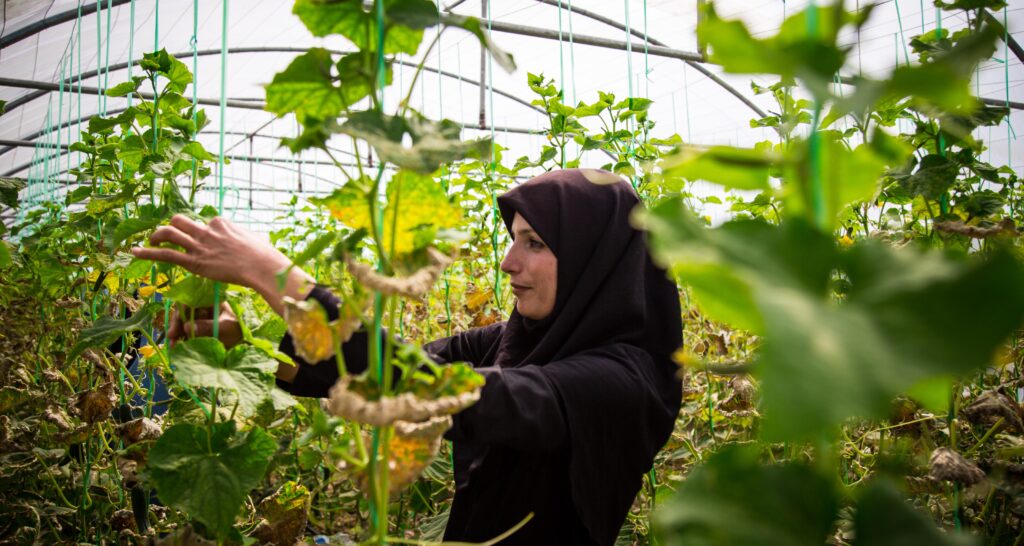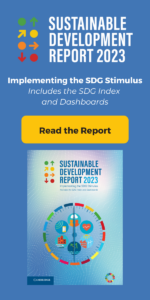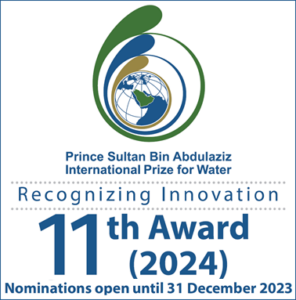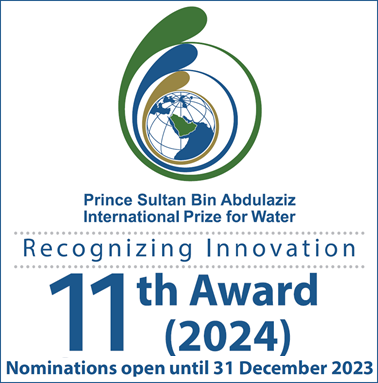Fairer finance for development in LDCs
Development in low-income countries is too often thwarted by lack of access to finance. The Decade of Action demands that we connect promising projects in these nations with the capital lifeline they need and deserve
Financing — Global

One of the more disturbing impacts of COVID-19, amid the harrowing human tragedies, is the depth of economic damage the pandemic has wrought. Look no further than the top-line points from the United Nation’s Financing for Sustainable Development Report 2021.
A few examples:
- Global gross domestic product contracted by 4.3% in 2020, marking the sharpest decline in output since the Great Depression.
- Global output is expected to remain well below pre-pandemic trends.
- Disturbingly and unsurprisingly, losses in output and per capita income have reversed many years of income gains in developing countries.
Of course, the harshest of these impacts were experienced by the world’s 46 least developed countries (LDCs). It proves, if proof were needed, that years of gains in Sustainable Development Goal (SDG) achievement can be eviscerated in a fraction of the time.
2020 was a reminder that unlocking the finance that will support both a resilient post-COVID economic recovery and accelerate SDG achievement in the world’s developing and LDC markets (or, as I see them, pre-frontier markets) represents neither a development nor a finance challenge. Rather, it is a development finance challenge.
It is a challenge that calls for innovation and intentionality to unlock public and private finance to historically underserved markets to finance SDG-positive and transformative projects. And it is a challenge that calls for robust and experienced intervention to advance the structural improvements in these markets that will sustain SDG gains and support economic resilience. Addressing this hybrid challenge is central to UNCDF’s mission and mandate as the UN flagship agency for LDC finance.
Scaling up inclusive digital economies and local development finance
Currently, only 6% of private finance mobilized by blended finance interventions go to LDCs, according to our flagship report Blended Finance in the LDCs. Even seasoned investors assume that low levels of finance flow to LDCs because of lack of a pipeline or projects with both commercial and development potential. The reality is that there is a wealth of projects in critical sectors: from energy to agribusiness, from healthcare to transportation to digital. More likely than not, the challenge is that finance capital (whether commercial or concessional) is not connecting with these projects. Scaling up public finance mechanisms and markets on the ground is essential to providing the initial foundation for finance to flow to such projects. Meanwhile, we must ensure that economies are poised to be inclusive, dynamic, and sustainable in the future.
One area of involvement is cities and local governments. From plastic waste to peaceful streets to economic and social empowerment, cities and local governments are typically the leading providers of essential services. Yet the global financial ecosystem favors countries that have access to capital markets with sovereign guarantees and a monopoly of taxation. It’s also biased towards large businesses, which can move capital with ease. Through our Local Development Finance practice, we work to scale up the transformative potential of local finance by increasing the flows of public and private capital in a variety of ways. These include:
- supporting policy and regulatory reforms for local governments
- strengthening domestic capital markets and local fiscal space
- financing development projects on the ground that possess both commercial and development potential (the role of our Dual Key pipeline management program)
This collective of capabilities enabled UNCDF in 2020 to support 536 local governments in 42 countries. Our support enhanced their subnational financial systems, creating fiscal space so that local economies can support future finance flows.
Another area is digital finance. Inclusion in the digital era is not a given. Technology itself is neutral, and can lead to either inclusion or exclusion based on how it is deployed and whether it is accompanied by measures prohibiting new forms of exclusion. Although digital technologies can leapfrog traditional models of market expansion, adoption often depends on whether the intended clients understand, accept, and perceive real value added from those financial and non-financial digital services. UNCDF’s Inclusive Digital Economies practice deploys a market development approach to support digital economies by focusing on both the supply side (the ‘digital rails’ or infrastructure) and the demand side (such as digital literacy-building and agent networks). We focus on accelerating such market development at the country level with government, the private sector, and academia. We give specific attention to developing the right services to reduce the ‘digital divide’ and to empower key customer segments, notably women, youth, and micro, small and medium-sized enterprises (MSMEs).
Scaling up project preparation
UNCDF’s work to scale up local transformative finance and inclusive digital economies has provided the platform to finance and support innovative projects with transformational potential. To date, UNCDF has completed 674 localized strategic investments. These demonstrate the effectiveness of decentralized financing and contribute to COVID-19 emergency response and recovery efforts at the local level. We’ve also partnered with over 420 financial and digital service providers, small and medium enterprises, and public organizations to provide inclusive financial and digital solutions to over two million people in 44 countries. In many other markets, such projects would have ready access to the financing, technical assistance, and business advisory services that would make them attractive to larger commercial lenders. Of course, this is hardly a given in pre-frontier markets.
With the right blend of finance through loans and guarantees, plus technical assistance and business advisory services, many of these projects can develop the capability to acquire commercial capital and achieve scale. UNCDF utilizes its pipeline of projects from our Local Development Finance and Inclusive Digital Economies practices. We provide the technical assistance and business advisory services that enable projects to attract follow-on, commercial capital while also advancing SDG achievement.
These projects occupy the pipeline for UNCDF’s project preparation capability, conducted through our Least Developed Country Investment Platform. The platform is our on-balance sheet investment portfolio. It enables UNCDF to provide loans and guarantees that can position small businesses with commercial and development potential. It also allows us to execute our risk management and investment policies:
- due diligence processes for vetting and assessing risks of potential investment opportunities
- investment monitoring systems
- capacities to manage and oversee a portfolio of capital investments and ensure robust accountability
Since 2017, UNCDF has disbursed a total of 18 loans and three guarantees (in financial inclusion, food security, and green energy) in seven countries. The portfolio has increased by 45% compared with 2019. Just as importantly, our portfolio also proves that investments in these pre-frontier markets can indeed be commercially viable.
Scaling up finance
Scaling up finance in support of developing and LDC markets requires the same approach as any successful investment strategy: diversification. Investment projects in these markets are not monolithic: they feature different types and levels of capital, and different levels of transformative potential. That is why UNCDF, as the UN flagship agency for LDC finance, will look to scale up finance in three distinct ways.
For MSMEs in ‘last mile’ markets (the businesses at the center of our traditional mandate), their capital needs typically lie between $50,000 and $5 million. This tends to be too large for microfinance, too small for institutional investors, and too risky for domestic banks. These projects require grants, technical assistance, and guarantees, which can fill capital needs while catalyzing follow-on finance into otherwise overlooked projects. This is just the sort of project finance we perform through our Local Development Finance and Inclusive Digital Economies practices.
For MSMEs with capital needs of $5 million to $25 million, blended finance solutions become a dominant source of capital. Blended finance vehicles can leverage official development assistance and other forms of concessional finance to absorb first losses on such projects, which can catalyze significant levels of commercial capital into otherwise overlooked projects. UNCDF is working with partners to capitalize and utilize two impactful blended finance vehicles:
- The BUILD Fund, a blended finance fund managed by Bamboo Capital Partners and targeting $250 million, which focuses on SMEs.
- The International Municipal Investment Fund (IMIF), managed by Meridiam and targeting €350 million, which focuses on SDG-positive infrastructure at the local level.
Finally, there are larger transformational projects, with financing valued at $20 million and above. Here, success requires convening big-ticket investment players, such as multilateral development banks, development finance institutions, and private capital investors. Looking to the future, UNCDF wants to take advantage of its on-the-ground presence to provide a pipeline to ensure that projects in LDCs and other markets can access the levels of capital that can unlock transformational potential. Specifically, we will look to convene and syndicate with the relevant development and finance actors, such as those bigger players mentioned above.
A transformational journey
Transformation occurs when local governments and cities are given critical fiscal space, and where markets for digital economies are developed. Transformation also occurs when project preparation and finance are scaled so as to connect promising projects with a capital lifeline. Transformation, in other words, is not just the goal or endpoint of the journey. It is the journey.
UNCDF hopes to provide a model that can be deployed by all relevant actors in the development space, the finance space or both. Our ambition is for these actors to finally and fully harness the hybrid power of capital: to deliver return on investment and to leave no one behind.







